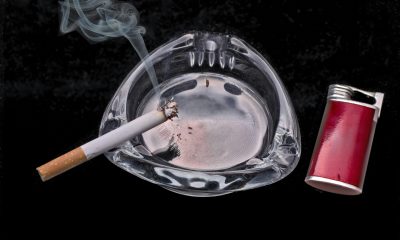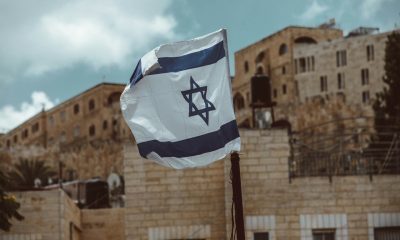Frontpage
Iarrtar ar aturnae Vladimir Kokorev an cás a dhíbhe ina choinne agus a chosc ar phóilíní na Spáinne maidir le fianaise a dhéanamh


Jose Antonio Choclan, the lawyer of Vladimir Kokorev, Spanish entrepreneur of Russian-Jewish origins, accuses Spanish police of manipulating evidence and requests the Judge of Investigation Court of Las Palmas (Spain), to dismiss the case, on the basis of lack of punishable offences.
“We have denounced and proven, by means of a forensic analysis, that the IT devices that the police agents claim to have contained “evidences” on which the accusation based their reports, have been manipulated by the agents, or at the very least, treated without a minimal chain of custody and destroyed in the process,” states Choclan, a former Magistrate of Madrid’s High Courts.
Kokorev’s family (Vladimir, his wife Yulia and their son Igor) was arrested in Panama in 2015 and extradited to Spain, under a nominal accusation of money laundering, although as of this moment (almost 10 years after the investigation commenced), the prosecution has yet to present any formal charges. Despite the suggestions of some media that the family is accused of laundering money in favor of Teodoro Obiang (President of Equatorial Guinea), the attorneys pointed out not only there is no such accusation, but that the same court established that there was no evidence linking the family to any acquisitions carried out by any members of Guinean government or their relatives.
Notwithstanding the lack of indictment, the family spent over two years in preventive prison in Las Palmas (Spain). As manifested by family members, the only reason for their imprisonment was to coerce a confession, and in particular, to exert pressure on Vladimir Kokorev himself, by imprisoning his elderly wife (67) and their son (36). The three were freed in 2017, after a number of concerned MEPs made a series of inquiries into the irregularity of their detention by Spanish authorities.
Moreover, the Investigative Judge, Ana Isabel de Vega, declared the case secret for 3 years and 10 months, without any possibility for the defense attorneys to access the case file. During most of this time, their clients remained in prison.
A SPECULATIVE AND SECRET INVESTIGATION
“The police agents have confirmed in a court deposition that their sole objective was to “certify” (in words of Canary Islands’ Police Inspector) that Vladimir Kokorev’s company Kalunga received money derived from illegal sources. That is, the police carried out a speculative investigation of my client and his family, which purpose was to associate them with any kind of illegal activity, creating an unsupervised police instruction, lasting already 10 years, and self-perpetuating with the hope of one day being able to justify its very existence,” states the defense.
This 10-year investigation was also unsuccessful, as Kokorev attorney explains, as the police have failed to obtain any evidence linking the funds obtained by his client with any illegal activity. There is still no evidence that Kalunga was in any way controlled by any members of Guinean government and not by Vladimir Kokorev himself, nor that any properties acquired by Kokorev were in fact owned by anybody else, nor of any laundering.
“The Police requested a warrant to arrest my client and his family in 2015, after 6 years of secret investigation, which is forbidden under article 118 of Spanish Criminal Procedure Law,” another excerpt from the writ, “Police agents falsified the report of U.S. Subcommittee by adding content that the original report did not have, which have been confirmed during the agents’ court deposition on May 8th 2018. "
A FALSFIED REPORT OF U.S. SENATE JUSTIFIED KOKOREV’S ARREST WARRANT
According to Choclan, the investigation of Kokorev was justified by a 2004 report of U.S. Senate Subcommittee on money laundering prevention. The report mentioned that Riggs Bank made a number of transfers from the account of Equatorial Guinea to that of Kokorev’s company Kalunga, without a due compliance procedure.
Although the Subcommittee’s report never established or suggested that Kalunga or its owner were involved in any kind of illegal activity, but solely admonished Riggs for not implementing compliance procedures, the police agents used it eleven years later to request Kokorev’s arrest warrant.
The only reason the Subcommittee report was used for such an extreme measure, is that the Las Palmas’ police unit “translated” it to Spanish as stating that Kalunga was owned by the president of Equatorial Guinea or his relatives and was used to launder money. The “mistranslation” was uncovered two years after Kokorev’s arrest, since the case file was secret before; and the police agents admitted in court, that they have not read the Subcommittee report itself, since “it was too long”. The agents admitted to copying excerpts from another report, prepared by a non-profit organization “Asociacion Pro Derechos Humanos” (financed in turn by George Soros’ Foundation Human Rights Watch).
“There was no any factual basis to order the arrest of my client, and the police was fully aware of it at the time,” the attorney concludes.
A DUBIOUS DEPOSITION BY ISMAEL GERLI
The only prosecution witness in the case is Ismael Gerli, a former Panamanian attorney of Vladimir Kokorev.
According to the documents attached to the writ requesting dismissal, there are a number of e-mails that prove that Gerli was motivated by his hatred for the family (seven months before he was arrested, Kokorev fired Gerli). In several e-mails addressed to the police, Gerli describes his former client as “[expletive] Jew”. In another e-mail addressed to the police, Gerli writes that he is “blind with hatred to hurt the [expletive] Russians”.
“Mr. Gerli used the arrests of my client and his family to take over their properties in Panama, for which he has been already indicted and awaiting hearing,” states Choclan.
In Gerli’s own words, he had received money from “Spanish justice” in May and June 2015, several months before giving a deposition against Mr. Kokorev. The deposition was taken by the police agents in Spanish Embassy in Panama, without the presence of a court official. Furthermore, the police agents acknowledged that they “negotiated” Gerli’s deposition (itself only 5 pages long and largely incoherent) during four days, after the defense presented them with several drafts of the document, uncovered thanks to the IT expertise.
Gerli refused to testify again, and thus to be cross-examined by the defense, after the secrecy was lifted, in his words “following on advice of [my] attorney”.
A USB CREATED BY THE POLICE
Another evidence that appeared shortly after Kokorev’s arrest in the case file, was a USB, which according to the police, belonged to Vladimir Kokorev’s son, Igor, and was “recovered” by Ismael Gerli. According to the police reports drafted in 2015, the USB contained a number of commercial documents, as well as three unsigned contracts for purchase of weapons. These documents were used to justify Igor’s arrest and twenty-six months imprisonment, but the police refused to deliver the USB to the defense for examination until compelled by the High Court of Las Palmas in December 2017.
The IT forensic report showed that the device was extensively manipulated by Las Palmas’ Police Department, after Kokorev’s arrest, to the point where it was impossible to determine when most of the files were created and by whom (in a surprising twist, drafts of “alternative versions” of Gerli’s deposition were uncovered precisely on this device). The analysis also concluded that the three weapon purchase agreements were created by the police itself, as the word documents display the abbreviation of Police Department as their creator.
In their depositions, the agents admitted that they have been manipulating the device, since they “never meant to it to be used as a court evidence.”
Although the “fabrication” of the USB is the most obvious example of manipulation, Choclan’s writ points out that the rest of the IT devices, confiscated by the police during their investigation, suffered similar malpractices.
“The IT expertise determined a total and absolute lack of chain of custody of each and every one of the devices, and a systematic manipulation of these devices by the police,” concludes the former magistrate.
The writ is supplemented by a five-page annex enumerating these manipulations.
A CASE FOR ECHR
According to Choclan, the process against Kokorev has repeatedly breached the Human Rights Convention, and that the petition to dismiss it in Spain is a first step to bring the case before the European Court of Human Rights.
Scott Crosby, a Brussels’ attorney, have announced that he will defend Kokorev’s interests before European Courts, should they fail to obtain fair treatment in Spain.
“I have faith in the system of judicial protection. If the Kokorevs are not given satisfaction by Spain, they will consider applying to the European Human Rights Court,” Crosby stated in an interview given to a Spanish newspaper. “In that case they would be seeking a ruling that a number of rights, protected by the European Human Rights Convention, had been violated by Spain. They might also seek an award of damages.”
Comhroinn an t-alt seo:
-

 TobacLá ó shin 3
TobacLá ó shin 3Cén fáth nach bhfuil beartas an AE maidir le rialú tobac ag obair
-

 An tSín-AELá ó shin 3
An tSín-AELá ó shin 3Bígí le Lámha chun Pobal Todhchaí Comhroinnte a Thógáil agus Todhchaí Níos Gile a Chruthú don Chomhpháirtíocht Uile-Bhabhta idir an tSín agus an Bheilg um Chomhoibriú Cairdiúil le Chéile
-

 ComhdhálachaLá ó shin 5
ComhdhálachaLá ó shin 5Bua cainte saor in aisce á éileamh agus an chúirt ag cur stop leis an ordú stop a chur le NatCon
-

 An Chomhairle EorpachLá ó shin 4
An Chomhairle EorpachLá ó shin 4Gníomhaíonn an Chomhairle Eorpach ar an Iaráin ach tá súil aici le dul chun cinn i dtreo na síochána
























